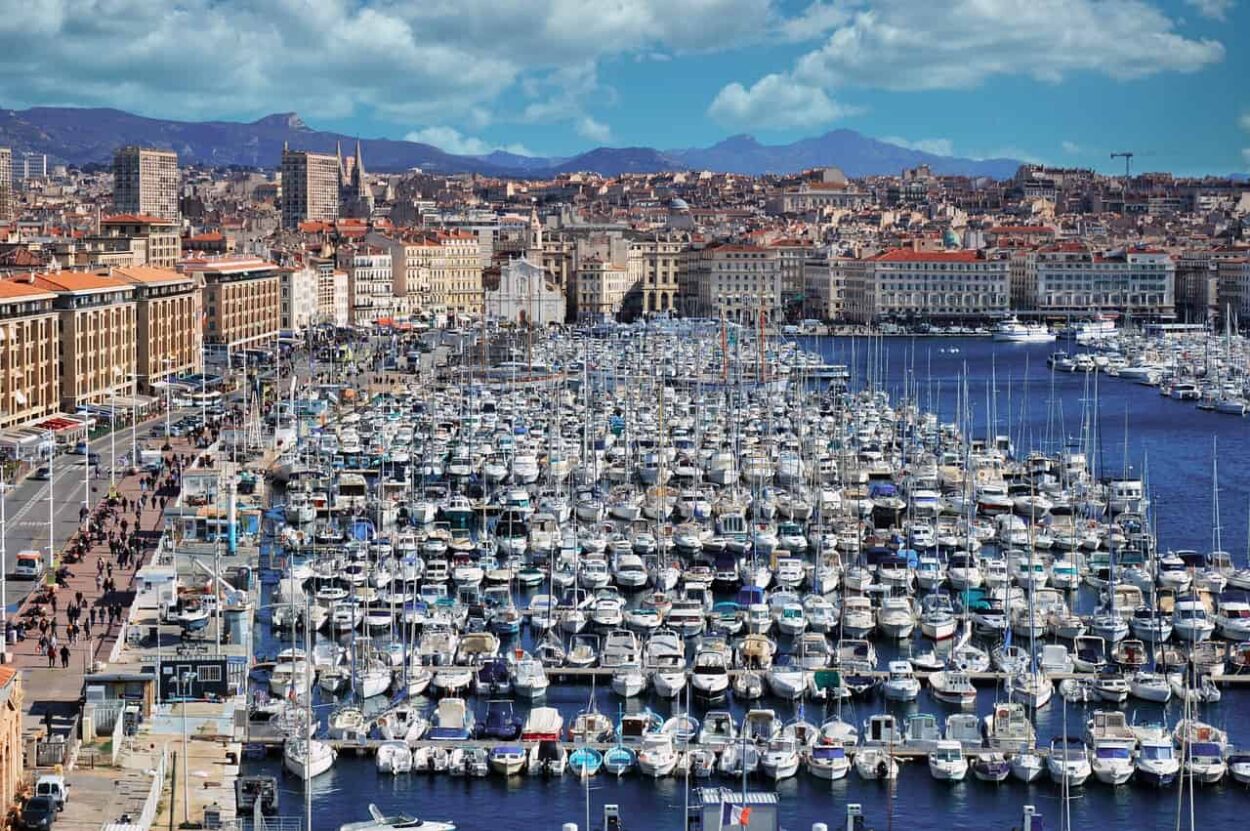The city of Marseille will soon complete its year as the European Capital of Innovation with a vibrant portfolio of ongoing and upcoming projects. Now, Parisians cannot ignore the prestige of its rival city—at least until the end of the year.
Paris, France’s capital, and Marseille, the country’s oldest city, have never quite seen eye-to-eye. This point was made evident during an online demonstration from many Marseillais who expressed their refusal to accept the logo Paris 2024 on the roof of their soccer stadium for the Olympic Games. The rivalry between the two cities manifests not only in the context of sports but also in cultural and social situations. Today, in the tech world, Marseille momentarily surpasses Paris by becoming a tech hub leader with multiple projects bringing it to the forefront of innovation.
“The region has earned multiple awards leading up to 2023. Previously, the country viewed Aix-Marseille as simply a territory for peaceful living. Now, the mentality has changed as we’re directly linked to the national climate of innovation. Parisians feel that things are really happening in Marseille and that it’s a territory they can count on,” said Diane Renaud, General Manager of La French Tech Aix-Marseille, during the Tour de France conferences organized by BFM Provence and BFM Business, held in Marseille on November 23, 2023.
Bon, it’s an exaggeration to state that Marseille has surpassed Paris, even momentarily, but the city did win the European Capital of Innovation Award in November 2022 and the prize of €1 million that accompanies the title. For several years leading up to its election, and since then, the Aix-Marseille-Provence metropolis has not been lacking in resources, projects, and vitality for the future.
NOTE: French media platform BFM Marseille Provence, in partnership with several entities including French Tech Aix-Marseille, provides citizens a weekly look at the tech innovations in the region during its new program: C’est la Tech BB.
These initiatives require the architecture industry to follow suit with innovative renovation and construction projects, equally responsible for the city’s advanced status since it hit the “top digital hub” list in 2019. The construction of a new data center in Marseille-Fos and a floating data center is on the horizon; as the city strengthens its number of data centers, the question of energy efficiency surfaces.
Digital Hub: Construction of New Data Centers
Marseille has evolved into a pivotal point for digital highways, securing the 9th position globally as a leading data hub with its data centers, submarine cables, new services linked to the deployment of 4G+ and 5G, artificial intelligence, blockchain, smart port data, etc.
Positioned strategically, the city facilitates sixteen undersea cables connecting Africa, the Middle East, and India, leveraging its prime location and a burgeoning number of data centers. Despite this, the escalating energy and space requirements of these data centers pose challenges, prompting innovative solutions such as the introduction of a floating data center in the port. This initiative, announced by American company Nautilus Data Technologies in late 2022, is set to address the space and energy consumption concerns.
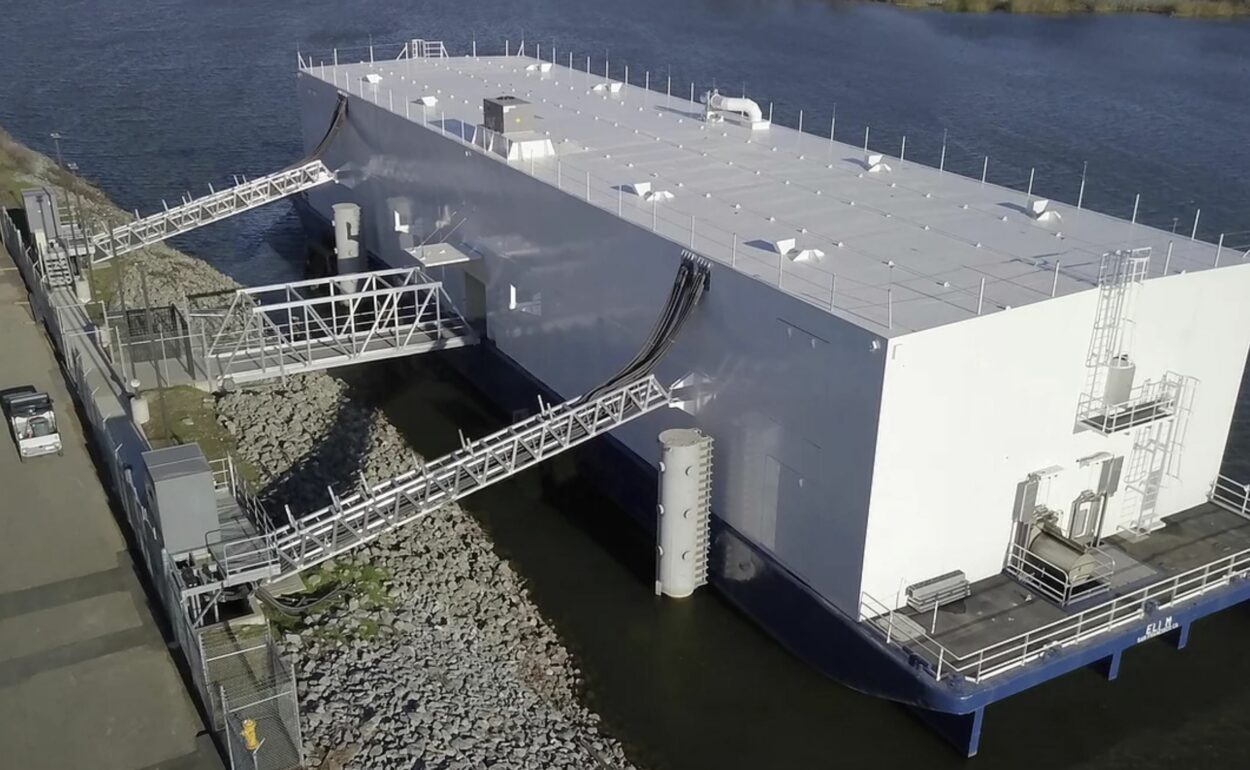
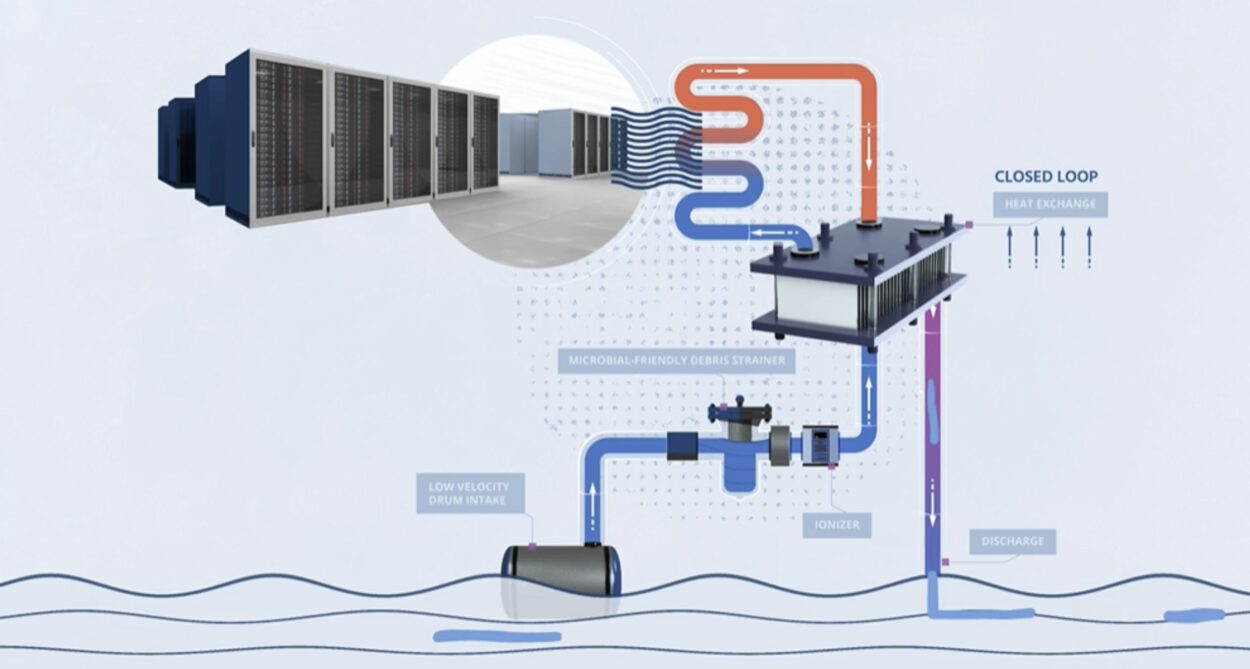
Parallel to this, Interxion, now Digital Realty, the world’s second-largest data center operator, has been transforming Marseille since 2014. The company is entering into the creation of its 5th data center in Marseille after acquiring the former sugar silo. However, the rise of data centers gives way to environmental concerns that these companies are prepared to face.
“We need to do this in an eco-responsible way because we’re creating the infrastructures and uses that are increasing at the same rate as data – a tenfold increase every six years – and it’s the responsibility of the entire chain of players, from telecoms operators to hardware manufacturers, data center operators, and others, to ensure that we do this with a little more density than the current growth,” stated Fabrice Coquio, President of Digital Realty.
“Otherwise, it’s going to pose a few challenges, especially as there’s a materiality involved with infrastructures. There’s nothing virtual about this digital world. It’s all about machines, cables, and links.
The whole chain is used to work on this digital issue, from buying low-carbon concrete to building data centers to choosing efficient equipment to working on cable lengths to working on the fundamental reduction of the energy efficiency of IT platforms. There are many issues at stake, including, among others, reusing heat. Digital Realty is working with experts in order to transfer heat from its port data center to its upcoming sugar silo data center; this will generate heating and cooling for the Euroméditerranée district.
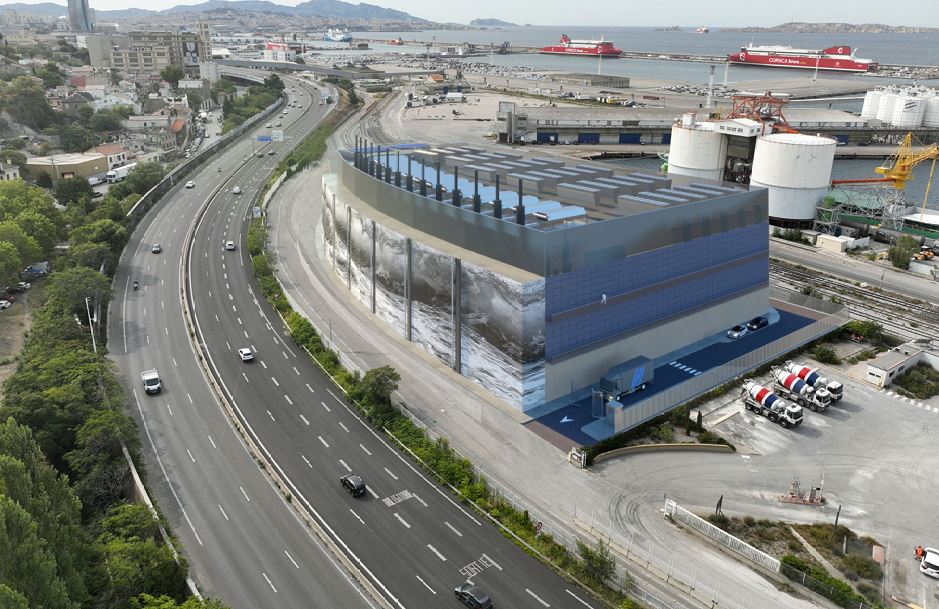
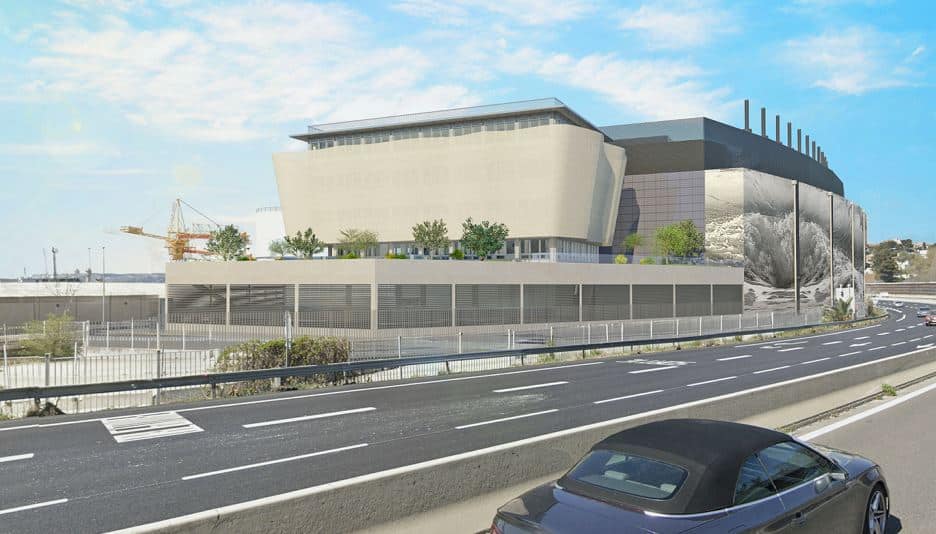
Green Hydrogen: Energy of tomorrow
As Digital Realty and Nautilus Data Technologies utilize the port water to generate energy, in part, the city of Marseille is becoming a hub for new energy sources. Despite being late in the game, according to Sylvain Bremond, Executive Vice President at Capenergies, Marseille has recently pushed forward with several major opportunities regarding the production of energy.
In a previous article, we mentioned the construction of the GravitHy factory which is scheduled to commence in 2024, with the production of green hydrogen expected by 2027. During the Tour de France conferences, we learned more about a similar project: H2V. Since 2016, H2V has taken up the challenge of producing green hydrogen to replace grey hydrogen and decarbonize industry and heavy mobility, the main CO2 emitters. H2V has opted for mass production to optimize production costs and to develop a network of service stations to supply the entire country.
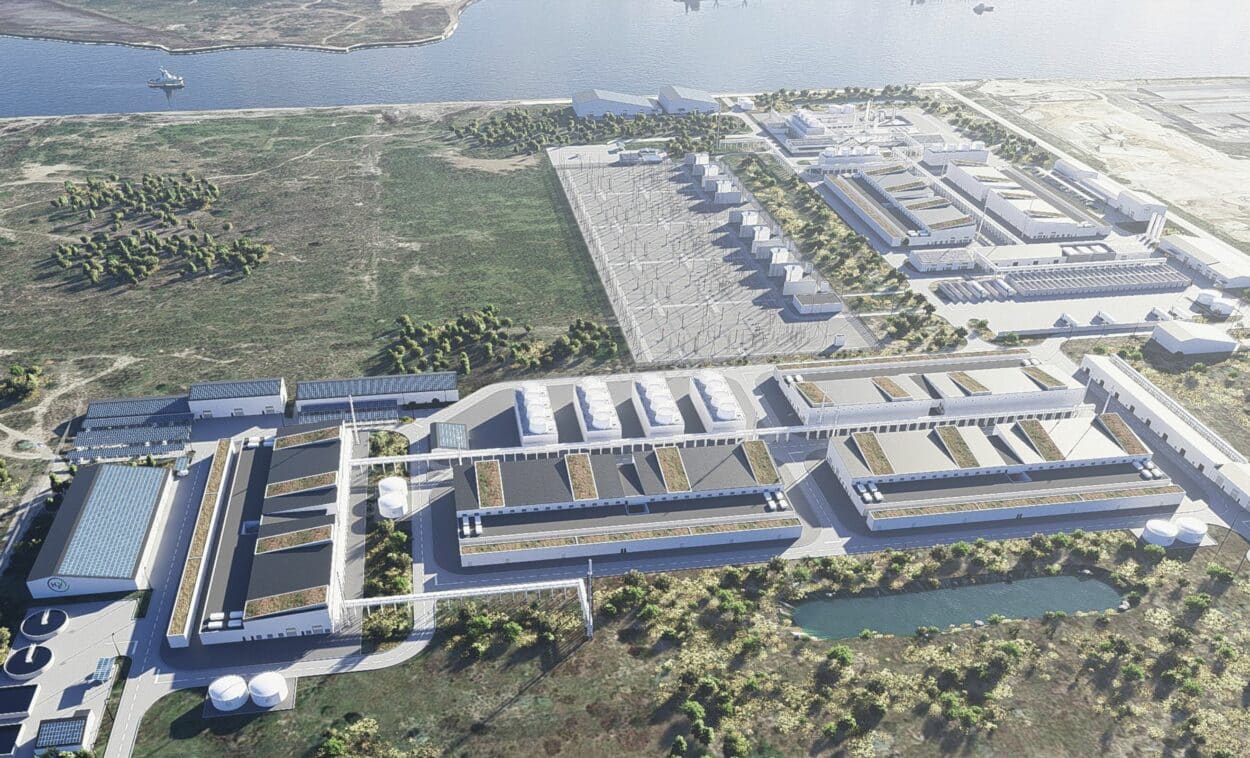
“With the low-carbon, renewable hydrogen we’re going to produce, we have plans to produce e-methanol, the fuel of the future for maritime companies,” said Alexis Martinez, General Director at H2V. “And for 2030, we’re working with international industrial partners to supply e-kerosene for the production of sustainable aviation fuels.”
H2V and Consortium SAF+, a Canadian world leader in the production of e-SAF (Electro Sustainable Aviation Fuel), have chosen Marseille Fos to pool their respective expertise with a view to proposing an e-SAF offer, an alternative fuel to kerosene, particularly eagerly awaited by the aviation sector.
Consortium SAF+ isn’t the only international company considering Marseille more seriously. American company Zoom recently signed a contract with Digital Realty in order to deploy infrastructures in Marseille for all of southern Europe, the Mediterranean, and Africa.
The city’s rise in prominence reflects the broader trends in the evolving landscape of digital connectivity, positioning Marseille as a critical player in global internet traffic and the tech world alongside cities like Miami and Singapore.
